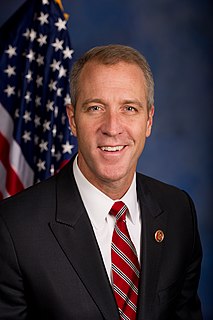A Quote by Ben Rhodes
I profoundly do not believe that the United States could make things better in Syria by being there. And we have an evidentiary record of what happens when we're there - nearly a decade in Iraq.
Related Quotes
Currently, the United States has troops in dozens of countries and is actively fighting in Iraq, Syria, Libya, and Yemen (with the occasional drone strike in Pakistan). In addition, the United States is pledged to defend 28 countries in NATO. It is unwise to expand the monetary and military obligations of the United States given the burden of our $20 trillion debt.
It was not the United States who invaded Kuwait; it was Iraq. It was not the United States that went to war with Iran; it was Iraq. It was not the United States that fired chemical weapons at Iran; it was Iraq. And it was not the United States that murdered innocent Iraqi citizens with chemical weapons; it was Iraq.
According to the United Nations Special Commission [UNSCOM], which carried out inspections in Iraq for the better part of a decade, Iraq possesses some 25,000 liters of anthrax. This is, for the record, more than 5 million teaspoons of anthrax. And we have no idea where any of it is. Saddam Hussein has never accounted for one grain of it.
Our process inside the United States government has gotten much better at making sure we touch all possible source of information about a refugee. The interview process has gotten more robust, so we've gotten our act together in that respect. The challenge remains, especially with respect to folks coming from Syria, we're unlikely to have anything in our holdings. That is, with people coming from Iraq, the United States government was there for a very long period of time. We had biometrics, we had source information. We're unlikely to have that kind of picture about someone coming from Syria.
The latest developments in Iraq are deeply troubling, but as the United States considers military and diplomatic responses to the actions of the Islamic State in Iraq and Syria (ISIS) action, we should be clear that U.S. troops on the ground cannot go a million miles near a sectarian civil war-it's simply not an option.
I think the President's decision to withdraw the United States, to keep a campaign promise in Iraq, without leaving a stay-behind force was a mistake, and I hear that from veterans in Wyoming and from parents who lost children fighting in Iraq. We're seeing it, though, around the world. When we, the United States leads a vacuum anywhere, that emboldens others to go in, when there is no sense of deterrence by the United States that lets bad actors move and fill the void.
Allowing an independent and sovereign Iraq could be a nightmare for the United States. It would mean that it would be Shi'ite-dominated, at least if it's minimally democratic. It would continue to improve relations with Iran, just what the United States doesn't want to see. And beyond that, right across the border in Saudi Arabia where most of Saudi oil is, there happens to be a large Shi'ite population, probably a majority.

































